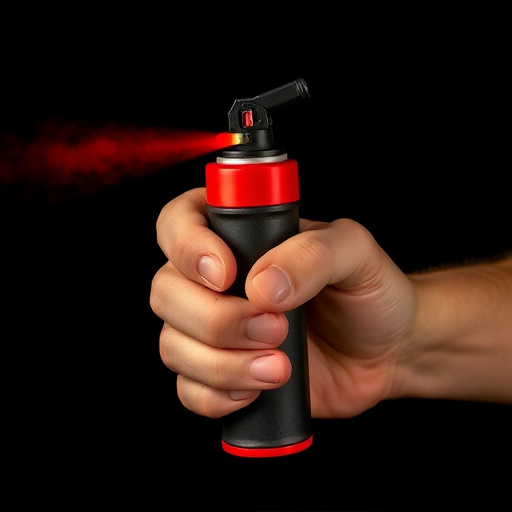Pepper Spray Laws by State vary widely, with some states heavily regulating possession and use while others are more permissive. These laws balance personal security needs with public safety concerns, impacting individuals' ability to protect themselves through pepper spray. Understanding and complying with local regulations is crucial to avoid legal issues and ensure safe self-defense practices. Always research Pepper Spray Laws by State before acquiring and using these tools for personal security.
“Enhance your personal security with a comprehensive guide to pepper spray, a powerful tool for self-defense. This article navigates the intricacies of understanding and utilizing pepper spray effectively. Delve into the legal landscape surrounding pepper spray across the United States, exploring state-by-state regulations (Pepper Spray Laws by State) to ensure compliance. Additionally, we’ll discuss personal security considerations and legal aspects, providing valuable insights for responsible ownership.”
- Understanding Pepper Spray: A Comprehensive Guide
- Pepper Spray Laws Across the United States
- Personal Security and Legal Considerations
Understanding Pepper Spray: A Comprehensive Guide
Pepper spray, also known as oleoresin capsicum (OC) spray, is a non-lethal self-defense tool designed to temporarily disable an assailant by causing pain and temporary blindness. It’s a popular choice for personal security due to its ease of use and effectiveness in deterring attacks. Understanding how it works, its legal implications, and proper usage is crucial when considering carrying pepper spray.
In the United States, Pepper Spray Laws vary significantly from state to state. Some states have strict regulations regarding who can possess and carry pepper spray, while others have less stringent rules. It’s essential for users to research and understand these laws by state to ensure compliance and avoid legal repercussions. Understanding the legal framework surrounding pepper spray can help individuals make informed decisions about personal safety and security.
Pepper Spray Laws Across the United States
Across the United States, pepper spray laws vary significantly from state to state, reflecting differing perspectives on self-defense and public safety. Understanding these laws is crucial for anyone considering carrying a pepper spray canister for personal security. In some states, pepper spray is classified as a weapon, requiring permits or licenses for purchase and carry. Other states have less stringent regulations, allowing individuals to possess pepper spray without formal authorization.
Pepper Spray Laws by State aim to balance the right to self-defense with public safety concerns. For instance, California has strict regulations, limiting the type of pepper spray allowed and restricting its use primarily to law enforcement. In contrast, states like Texas and Florida have more permissive laws, allowing citizens to carry pepper spray for personal protection without significant restrictions. These variations underscore the importance of checking local laws before acquiring or using any form of self-defense equipment, including pepper spray canisters.
Personal Security and Legal Considerations
Personal security is a growing concern for many individuals, leading some to consider carrying pepper spray as a deterrent. However, it’s crucial to understand the legal considerations surrounding its use and possession, especially since Pepper Spray Laws by State can vary significantly. Each state in the US has different regulations regarding the purchase, carrying, and use of pepper spray, with some allowing its use for self-defense only while others permit it for animal control or other specific purposes.
Before purchasing a personal security canister, individuals should research their state’s laws to ensure compliance. Non-compliance can result in severe penalties, including fines and imprisonment. It’s also important to note that some states have restrictions on the type and amount of pepper spray allowed, as well as where it can be carried (e.g., in a purse or openly visible). Understanding these legal nuances is essential for responsible and lawful self-defense.
In conclusion, pepper spray canisters are powerful personal security tools, but their legality varies significantly across the United States. Understanding state-specific pepper spray laws (Pepper Spray Laws by State) is crucial for responsible ownership and usage. By staying informed about legal considerations outlined in this guide, individuals can protect themselves while navigating Personal Security and Legal Aspects effectively.
